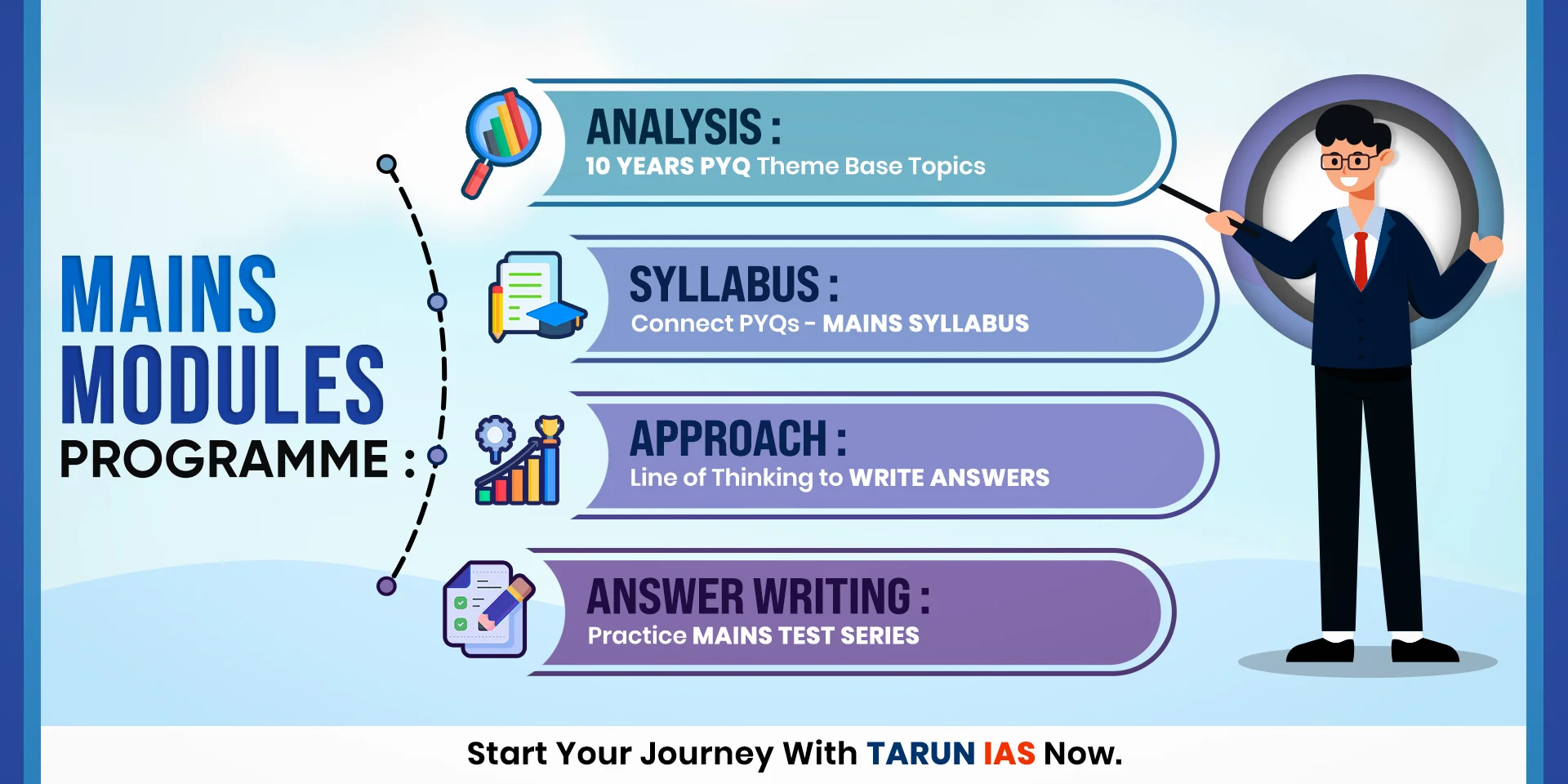Mains Modules
Learn From The Selected

- Referring to the General Studies (GS) Mains syllabus before writing the UPSC Mains examination is crucial for several reasons:
- Precision in Answering: The GS Mains syllabus outlines the specific topics and themes that UPSC expects candidates to cover. By referring to the syllabus, aspirants can ensure that their answers directly address the key points and requirements, leading to more precise and focused responses.
- Avoiding Irrelevant Information: The syllabus acts as a guide, helping candidates avoid including irrelevant or extraneous information in their answers. This is essential for managing time effectively and ensuring that each response contributes to the overall quality of the answer booklet.
- Strategic Time Allocation: The Mains examination has multiple papers with diverse topics. The syllabus helps aspirants strategically allocate their time based on the weightage and importance of each topic. This ensures a balanced and well-structured approach to answering questions.
- Meeting Exam Expectations: The UPSC Mains syllabus reflects the expectations of the examination authority. Familiarizing oneself with the syllabus helps aspirants align their preparation with UPSC's requirements, making their answers more in line with the examiner's expectations.
- Coverage of Key Themes: The syllabus provides an overview of the key themes and issues to be covered in each subject. This helps aspirants organize their knowledge and present a comprehensive view in their answers, demonstrating a thorough understanding of the subject matter.
- Linking Topics Across Papers: As the Mains examination consists of multiple papers, understanding the syllabus helps aspirants identify potential linkages between topics across different papers. This interdisciplinary approach can enhance the quality of responses.
- Avoiding Overlapping Content: The syllabus helps aspirants avoid redundancy by preventing the repetition of content across different answers. This ensures that candidates cover a wide range of topics without duplicating information.
- Strategic Revision: During the revision phase, referring to the syllabus allows aspirants to focus on specific areas identified as important by UPSC. It aids in targeted revision, reinforcing key concepts and increasing confidence before the examination.
- Comprehensive Coverage: Cover the entire UPSC Mains syllabus for a holistic preparation approach.
- Structured Curriculum: Organize the course content in alignment with the sequence and emphasis of the GS Mains syllabus.
- Interdisciplinary Approach: Integrate knowledge across subjects to help aspirants recognize linkages between topics.
- In-depth Analysis: Delve into topics with depth, encouraging critical analysis and nuanced understanding.
- Current Affairs Integration: Incorporate relevant current affairs components to keep candidates updated.
- Practice and Mock Tests: Include ample opportunities for practice, including regular mock tests for enhanced readiness.
- Answer Writing Practice: Emphasize answer writing exercises, assignments, and feedback mechanisms to improve articulation skills.
- Personalized Guidance: Provide access to experienced faculty or mentors for tailored guidance on individual strengths and weaknesses.
- Quality Study Material: Offer high-quality study materials for effective revision and reinforcement of key concepts.
- Interactive Learning: Incorporate group discussions, doubt-solving sessions, and peer interactions for an enriched learning experience.
- Adaptability to UPSC Changes: Ensure the course is adaptable to any changes in the UPSC exam pattern, syllabus, or question format.
- Feedback Mechanism: Establish a robust feedback mechanism for constructive criticism, identifying areas for improvement, and tracking progress.
Click Here to Download the Brochure

